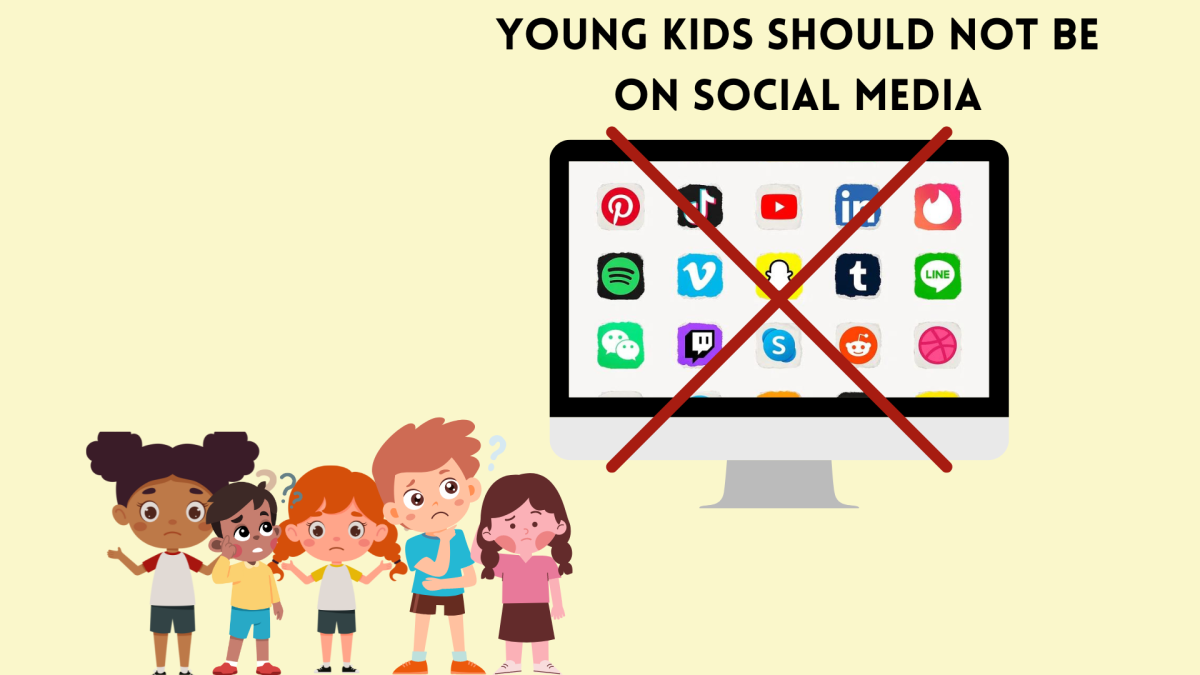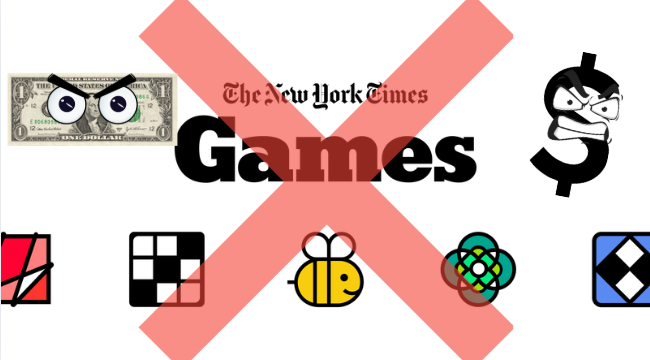As social media continues to grow, the amount of people who use it also continues to increase. Despite media apps claiming to have age restrictions usually set at age 13 and older, over the years there has been a lot of kids younger than that joining the platforms.
One of the most popular apps young kids have been seen joining is TikTok. According to a New York Times article, out of the nearly 49 million daily users on TikTok, over a third of the users are unknown to be under the age of 14. The worst part is this is simply the known amount, it’s estimated to be a lot higher.
Although social media can be a fun way to communicate with friends, or express yourself, it also can lead to many harms. In early ages children are still developing mentally, and learning about things like their identity. Joining social media during this stage of life leaves the door open for possible mental or physical harm.
Cyberbullying has been around for as long as the internet has. Despite efforts to monitor/stop it, it doesn’t seem to be going anywhere, anytime soon. When kids who are in sensitive parts of developing themselves are exposed to this bullying, it increases the possibility of mental health problems. Studies have shown that one of the most common ages for cyberbullying is around the ages of 11-12. These ages are one of the most detrimental for developing a sense of self identity. Having unrestricted access to social media increases the chances of having anxiety, depression, or other mental health disorders.
Another problem with social media is the influences that other people can have on underage users. When an adolescent is watching someone else’s life on social media, they may be exposed to media influencers whose content glorifies things such as violence or other harmful actions, such as promoting sexist, racist, or other types of hate speech.
Even though social media apps should be doing more to restrict the access of underage users, the blame can’t be put entirely on them. As social media has grown, so has the influencers who keep the apps alive. Different apps such as TikTok, Instagram, and Snapchat allow for people to share interests, advice, or just funny/relatable content. This has included family vloggers who share details about their life and their family. One of the biggest problems with family vloggers is you can’t know their true intentions. Although not all family vloggers have ill intentions, sometimes it’s hard to figure out which ones are genuine, and which are simply exposing their children to dangerous situations.
An example of this sort of debate is with a TikTok influencer named Jacquelyn Eleanor. Jacquelyn’s entire account is dedicated to her young daughter, Wren. On her account she posts different videos featuring her daughter doing things such as eating, modeling outfits, ect. Even though from a glance the account seems innocent, recently there has been some concern brought up about the amount of views, likes, and saves each one of their videos receive. People are worried that some of the attention these videos receive are from predators that are endangering the young child. This also brings up the issue that if you have accounts where kids are being featured, then other kids might begin to think the app is ok to use. This could again leave the door open to stumble upon other things that could cause harm.
Accounts like this lead back to the conversation of who is in the wrong. With all the dangers associated with social media, it is agreeable that young children should not have access. So when parents decide to post their child leaving them vulnerable, attention turns to the media apps themselves to have stronger regulations related to posting children and the young users that these kinds of posts attract.
Whether it’s parents having stronger supervision over their kids’ internet usage, or media apps creating stronger regulations, something needs to be done. There is no secret that social media has done harm to many young children, and this number of kids will only continue to rise if no action is taken to keep young kids off of social media.









